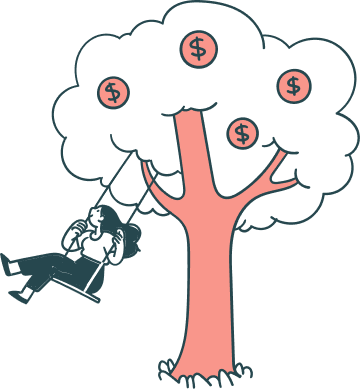Your women’s ministry uses numerous resources to impact its members’ lives in meaningful ways. From biblically-based study materials to enriching events, the right supplies can make the difference between a group that simply meets weekly and one that grows spiritually together.
Your Bible study group needs financial support to access these crucial resources, but where will it come from? Enter virtual fundraising: the perfect balance between raising much-needed funds and engaging your ministry’s members, all while focusing on spiritual growth! While plenty of fundraising ideas can benefit churches, a virtual format is the key to widening your reach through a cost-effective campaign or event.
In this guide, we’ll break down the process of hosting a virtual fundraiser for your women’s ministry in five simple steps. Let’s get started!
1. Define your fundraising goals.
Every fundraiser must start with goal-setting. After all, how can you raise funds for your Bible study group if you don’t know why you’re fundraising or how much funding you need?
However, the most crucial place to start when setting your fundraising goal isn’t in your group’s financial data; it’s in prayer. Before anything else, pray about your ministry’s mission, future, and needs. Prayer can provide clarity and peace as you ensure your fundraising goals align with the purpose of your ministry.
After dedicating time to prayer, start writing out the tangible needs a virtual fundraiser would address. For example, you may need funds to:
- Purchase Bible study materials, such as Christian women’s books, devotionals, or other educational resources
- Fund a special event, including retreats, seminars, or conferences your group wants to attend
- Support a community outreach initiative aimed at making a positive impact in your local area
Once you’ve assessed your group’s needs, evaluate the costs associated with each objective. For example, calculate the number of books you’d need to supply and how much each book costs.
For more context on how your ministry’s goals fit into its current budget, consult your church’s bookkeeper or the individual responsible for managing finances. Someone well-versed in bookkeeping best practices can help you narrow down a realistic target amount for your fundraiser.
2. Choose a type of virtual fundraiser.
Different fundraisers can raise different amounts, meaning your fundraising goal will impact the type of campaign or event you choose to host. For example, expensive items at an online auction may raise significantly more than a crowdfunding campaign for a small ministry.
Use your fundraising goal and what you know about your target audience to choose a virtual fundraising idea that raises enough funds and engages potential participants. Some popular ideas that are beneficial to women’s ministries include:
- Virtual auctions, in which participants place mobile bids for items your ministry auctions off
- Mobile giving campaigns, including text-to-give fundraisers
- Product fundraisers, which involve selling merchandise to raise money for your ministry
- Fundraising letters written directly to potential donors asking for their support
Remember to ensure you have the tools necessary to host your chosen fundraiser. For example, a virtual auction needs mobile bidding software that offers access to an item catalog and secure payment processing. If your church or ministry doesn’t already have the necessary fundraising tools, look for all-in-one software that manages multiple campaigns and events. This way, you can host additional fundraisers in the future.
3. Incorporate your ministry’s focus.
Just as your ministry’s focus should guide your fundraising goals, it should also impact how you conduct your campaign or event. For example, Esther Press explains that a strong biblical foundation is a must-have feature of solid women’s Bible studies. If your group is studying a particular passage of Scripture or focusing on a specific biblical principle, highlight that in your fundraising efforts!
Emphasize your group’s activities in the fundraiser’s materials and marketing. This could include using a relevant Bible verse as the focal point of your promotional materials or theming the fundraiser around a fruit of the Spirit. As a result, you won’t just raise the funds your ministry needs—you’ll get donors excited about your cause and garner support for the women in your group.
4. Promote your fundraiser.
With the logistics of your virtual fundraiser locked down, it’s time to spread the word about the opportunity to give. Create various promotional materials to generate interest in the campaign or event. These could include:
- eCards: Design personalized eCards to invite church congregants to participate in your fundraiser. Plus, eCards can be sold to supporters who want to send them, making them another option for raising funds virtually!
- Social media posts: Share the fundraiser’s significance on your ministry’s social media channels using eye-catching graphics and compelling messaging.
- Emails: Use direct communication, like email, to disperse critical details about the virtual fundraiser to potential participants. For example, email people interested in learning more after seeing a social media post about your upcoming campaign.
Getting Attention’s rundown of church marketing agencies points out that different marketing strategies work for different ministries. To effectively promote your virtual fundraiser, you’ll need to research your target audience and determine which channels and content types best resonate with them.
5. Follow up and acknowledge donors.
Most fundraising professionals know that the end of a fundraiser is never truly the end. You’ll need to account for a stage immediately after your campaign or event wraps up to thank those who contributed.
Take the time to write personalized thank-you messages to each participant in your virtual fundraiser. Acknowledge their specific contributions to express genuine gratitude for their support and show that your ministry values their support. Remember to share the outcomes of the fundraiser, including how you used their donation and the difference they made in the lives of your group’s members.
For example, let’s say you hosted a mobile giving campaign to raise enough money for all the women in your Bible study group to attend an influential Christian women’s conference in your local area. When thanking those who donated to your campaign, you might include:
- Details about the number of tickets you were able to purchase and what the conference entailed
- Pictures taken at the conference
- Testimonials from the women who attended, explaining how the event impacted them spiritually
By sending heartfelt appreciation messages, you’ll also unlock opportunities to recruit new members to your Bible study group, engage your local community, or even secure support for future fundraisers. Authentic outreach will ultimately help your women’s ministry expand its impact and reach its broader goals.
Hosting a virtual fundraiser not only supports your ministry but also the women who participate in it. Even if you’re not a fundraising professional, you can manage a successful event or campaign that provides the funding needed to further your ministry’s mission. With a few key strategies and the right tools, you’ll have the financial support you need in no time!



